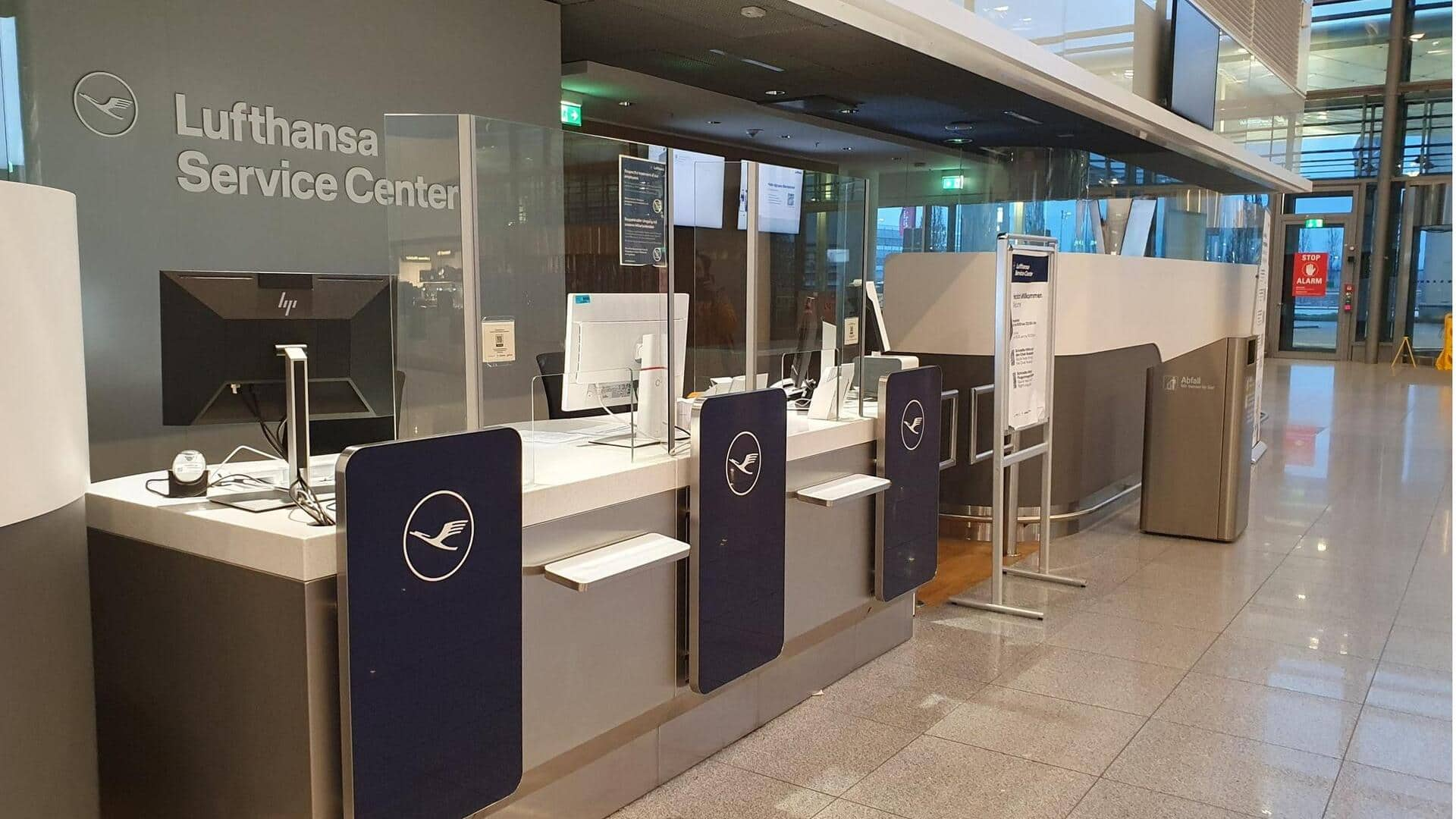
Germany's transport sector hit by strikes, travel disrupted
What's the story
Days after surpassing Japan to become the world's third-largest economy, Germany has been hit by a wave of strikes. On Tuesday, workers in the country's transportation sector walked off their jobs, causing chaos at airports, bus and train stations. The strikes stem from demands for higher wages and improved working conditions, with unions arguing that inflation has made life difficult for their members. A similar strike earlier this month put Germany—reputed for its efficiency—to a standstill.
Context
Why does this story matter?
Airports in major cities like Frankfurt and Munich were affected by Tuesday's strike led by the Ver.di labor union. The union comprises 25,000 members, including staff involved in check-in, aircraft handling, and freight staff. Consequently, hundreds of flights were impacted, affecting both domestic and international travelers. To note, the union is pushing for pay raises of 12.5% or at least €500 (Rs. 44,678) more per month and a one-time payment of €3,000 (Rs. 2.68 lakh) to counteract inflation.
Twitter Post
Visuals: Airport workers strike in Germany
Protest an und in den Terminals: Streikende am #Flughafen #München. #Streik-Beteiligung beim #Lufthansa-Bodenpersonal lt. #Verdi 90% @BR24 pic.twitter.com/3dbl8BgYJm
— Birgit Grundner (@GrundnerBirgit) February 20, 2024
Railways
Rail and local transit workers join the strikes
Around 90,000 workers from over 130 local transport operators went on a strike earlier this month. Their demands include having a shorter workweek and additional compensation for their shifts, especially night shifts. To recall, in January, the rail workers' union held a series of strikes to protest contract negotiations with Deutsche Bahn, the national railway company of Germany. They called for a reduction in working hours from 38 to 35 per week without a pay cut but it was rejected.
Negotiations
Ongoing negotiations and potential future disruptions
Reports suggest that contract negotiations are still happening. There might be more warning strikes or longer strikes in the future. The rail workers union has agreed not to stage additional strikes before March 3, however, if no agreement is reached by then, train travelers may face further disruptions. Each union's demands are different but they center around higher wages and better working conditions.